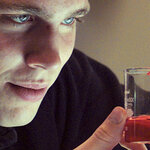
The hot buzz word in the health care reform sector is "comparative effectivness research," and the lay press is picking up on the partisan rumblings in Washington over this provision in the recent stimulus legislation. But what is CE research, and why should we care about the minutiae involved in the bickering of a bunch of Washington politicians?
In fact, we should care very much, as it could change the way physicians practice medicine and consumers use health care.
What is the argument? Mainly, and this should come as no surprise, the fight is over money. Specifically, the…
